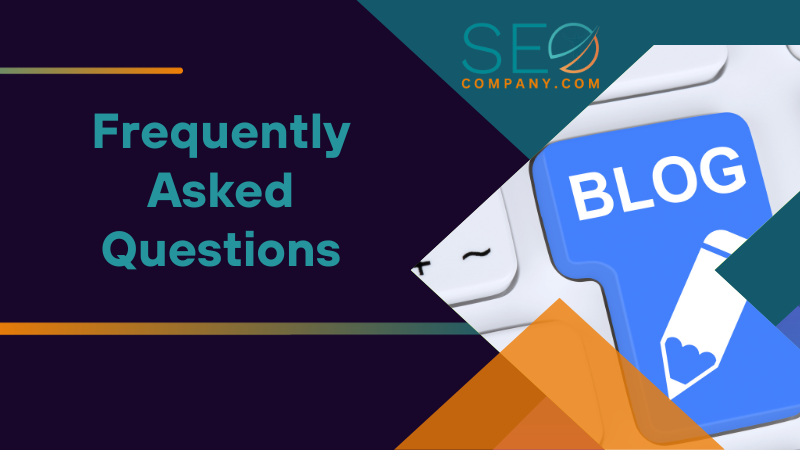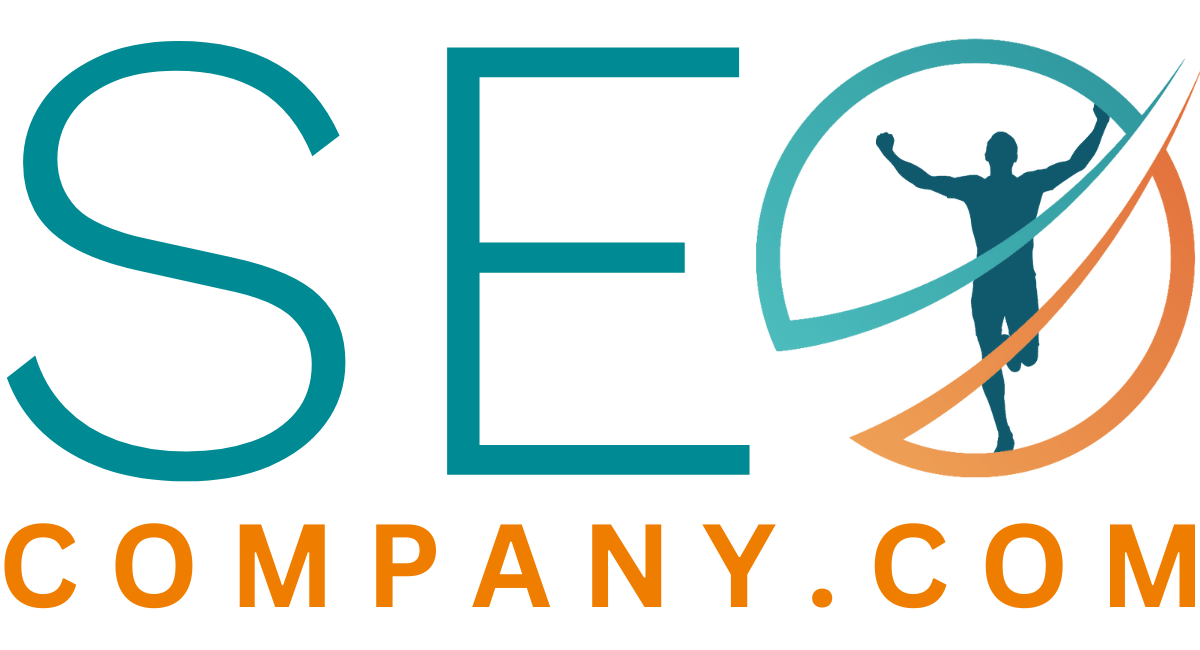
Are you ready to skyrocket your blog’s search engine rankings, attract a loyal audience, and establish authority in your niche? Let us unveil the secret to achieving all of this and more through the power of blogging for SEO! In this blog post, we will dive deep into the most effective strategies and techniques to optimize your blog for improved search engine rankings, from on-page SEO factors to off-page promotion and beyond. But first, let’s answer the question: does blogging help SEO? Buckle up and get ready for a thrilling adventure into the world of SEO!
Key Takeaways
Blogging can dramatically improve SEO performance and search engine rankings!
Optimize content, build backlinks, promote on social media & collaborate with other bloggers for successful blog SEO.
Experience the long-term rewards of blogging such as building authority & trust, fostering a loyal audience and increased organic traffic, how exciting!

The Impact of Blogging on SEO
Blogging significantly impacts your website’s SEO performance. Prioritizing content quality, keyword optimization, and regular updates can enhance your blog’s visibility on search engine rankings, thus making your content more accessible to potential readers. But how exactly does blogging help with SEO?
Search engines prioritize high-quality, relevant content. Regularly creating excellent blog posts tailored to your target audience’s needs and interests signifies to search engines that your site is a worthy resource for promotion in search results. Moreover, comprehensive blog posts that cover a topic in great detail are more likely to rank highly on search engines, as they love content that provides extensive information on a subject.
In addition to content quality, keyword research and optimization also significantly impact blog SEO. Recognizing user-interest search terms and embedding them into your blog posts allows you to craft content with a high potential for ranking on Google and other search engines. But remember, the focus should always be on providing helpful and relevant content to your readers, rather than stuffing your posts with keywords just for the sake of SEO.

Content Quality and Relevance
The cornerstone of any successful blog SEO strategy is high-quality, relevant content. It’s vital in drawing in, retaining readers, and enhancing search engine rankings. To ensure your blog posts are top-notch, focus on providing comprehensive, in-depth information on your chosen topic. And don’t forget to include evergreen content – these are articles that remain valuable and relevant over time, leading to increased organic traffic and improved search engine rankings.
Beyond text, visual components like images and videos can significantly boost your blog content and elevate search engine rankings. However, it is important to optimize these visual elements for SEO. For images, this includes adding alt text – a brief description of the image that helps search engines understand its content. Additionally, keeping image file sizes to a minimum (ideally around 250 KB) can help improve your site’s page speed, which is another crucial factor for SEO.
When it comes to blog content, it’s also essential to avoid the pitfall of keyword stuffing. While incorporating relevant keywords into your content is important, overdoing it can actually harm your SEO efforts. To strike the right balance, focus on using semantically related keywords throughout your content, ensuring that your blog posts remain informative and engaging for your readers.
By consistently producing high-quality, relevant content that addresses the needs and interests of your target audience, you will not only attract and retain readers but also improve your blog’s search engine rankings – a win-win situation!

Keyword Research and Optimization
Performing keyword research and enhancing your blog posts with specific keywords effectively amplifies search engine visibility and propels organic traffic. By understanding the search terms your audience is using, you can:
Create content that perfectly aligns with their interests and needs
Increase the chances of your blog posts appearing in search engine results
Attract more targeted traffic to your blog
Improve the overall visibility and reach of your blog
To start, focus on the topics your blog will cover and use keyword research tools like Google Ads Keyword Planner or Surfer SEO to identify popular search terms and phrases. These tools can help you quickly complete the keyword research process and provide valuable insights into keyword competition, search volume, and more. Once you have identified your target keywords, incorporate them naturally into your blog posts, making sure to avoid keyword stuffing.
When optimizing your blog posts, it’s important to consider both short-tail and long-tail keywords. While short-tail keywords are often more competitive, long-tail keywords typically have lower competition and can help you rank higher for specific search queries. Additionally, long-tail keywords often have higher conversion rates, as they target users who are further along in their decision-making process.
By incorporating the right mix of short-tail and long-tail keywords into your content, you can ensure that your blog posts are SEO-friendly and attract a steady stream of organic traffic.

Freshness and Regular Updates
One of the most effective ways to improve your blog’s search engine rankings is to regularly update and add fresh content. Search engines like Google love websites that consistently produce new, relevant content, as it signals that the site is active and up-to-date.
In addition to publishing new blog posts, updating existing content can also work wonders for your SEO. By refreshing old blog posts with new information, images, or links, you can effectively launch a new blog post without having to write an entirely new article – how awesome is that?
Seasonal content is another great way to keep your blog fresh and relevant. By creating content around specific holidays, events, or trends, you can tap into the increased interest and search volume that comes with these occasions.
By regularly updating your blog with fresh, relevant content, you can:
Signal to search engines that your site is active and worth promoting in search results
Ultimately lead to improved search engine rankings
Increase organic traffic to your site.

On-Page SEO Factors for Blog Posts
Having discussed the significance of content quality and keyword optimization, we can now examine some key on-page SEO factors for blog posts. These include optimizing title tags and meta descriptions, ensuring proper heading structure and formatting, and implementing internal and external linking strategies.
These on-page SEO factors play a crucial role in making your blog posts more accessible and readable, both for users and search engines. By optimizing these elements, you can improve your blog’s visibility in search engine results and attract more organic traffic to your site.
Eager to understand the nuances of on-page SEO for blog posts? Delve into each of these factors to learn how they can help boost your blog’s search engine rankings!

Title Tags and Meta Descriptions
Title tags and meta descriptions are two of the most important on-page SEO factors for blog posts. By optimizing these elements, including your blog post title, with targeted keywords, you can improve your search engine rankings and boost click-through rates.
To optimize your title tags, include your target keyword within the first 60 characters of the title. This ensures that your keyword is visible in search engine results and increases the likelihood of users clicking on your link. When it comes to meta descriptions, aim to include your long-tail keyword as early as possible in the description, as this can help improve its relevance to search queries.
To create separate SEO titles using Yoast, click “edit snippet” in the Yoast section of the WordPress editor, delete the automatic title tags, and write your own SEO-friendly title. Additionally, when selecting anchor text for your links, choose precise and specific terms related to the content on the other side of the link, rather than using generic words like “traffic” or “conversion”.
By optimizing your title tags and meta descriptions with targeted keywords, you can improve your blog’s search engine rankings and attract more organic traffic to your site.

Heading Structure and Formatting
Proper heading structure and formatting are essential for making your blog posts more readable and accessible for both users and search engines. Using clear, well-structured headings not only helps your readers navigate your content more easily, but it also allows search engines to better understand the structure and hierarchy of your content.
To optimize your heading structure, use H1, H2, or H3 subheadings to include your target keyword. This can help improve the relevance of your content and boost its SEO value. Additionally, consider using the “reverse pyramid” style of writing, which places the most important information at the top of your post and less important information towards the bottom. This approach can help increase visitor engagement on your page and encourage readers to spend more time exploring your content.
When formatting your blog posts, be mindful of the readability of your content. Here are some tips to make your content more digestible and visually appealing:
Break up large blocks of text with subheadings
Use bullet points to highlight key points or lists
Incorporate images to add visual interest
Consider using numbered lists for step-by-step instructions or rankings
By following these SEO tips and formatting techniques, you can improve the user experience and potentially boost your search rankings, which can have a positive impact on your search engine rankings.
By implementing proper heading structure and formatting in your blog posts, you can enhance the readability and accessibility of your content, leading to improved search engine rankings and a better experience for your readers.

Internal and External Linking
Internal and external linking are crucial components of a successful blog SEO strategy. By incorporating links to other relevant content within your blog posts, you can establish topical authority, distribute PageRank, and improve the overall user experience.
Internal linking refers to the practice of linking between different posts on your website. By creating contextual relationships between new and old posts, you can pass on valuable link juice to older articles and strengthen the relevance of your content. To save time when managing internal links, consider using tools like AIOSEO, which can suggest relevant posts to link to and provide appropriate anchor text.
External linking, on the other hand, involves linking to relevant content on other websites. By including external links in your blog posts, you can provide additional resources for your readers and establish your blog as a trustworthy source of information. Additionally, external links can help improve the authority and trustworthiness of your blog in the eyes of search engines, ultimately leading to improved search engine rankings.
By effectively implementing internal and external linking strategies in your blog posts, you can enhance your blog’s authority and trust within your niche, ultimately leading to better search engine rankings and increased organic traffic.

Off-Page SEO Strategies for Bloggers
In addition to on-page SEO factors, off-page SEO strategies also play a crucial role in improving your blog’s search engine rankings. These strategies include building backlinks, promoting your content on social media, and collaborating with other bloggers through guest posting.
By incorporating these off-page SEO strategies into your overall blog SEO plan, you can significantly boost your blog’s visibility in search engine results and attract a larger, more engaged audience.
Let’s explore each of these off-page SEO strategies in more detail and learn how they can help you take your blog’s SEO performance to new heights!

Building Backlinks
Building high-quality backlinks from authoritative websites is a powerful way to improve your blog’s search engine rankings and drive referral traffic. When other websites link to your content, they essentially vouch for its quality and relevance, signaling to search engines that your blog is a valuable resource worth promoting in search results.
To build backlinks, consider the following steps:
Reach out to authoritative websites within your niche and request a link to your content.
In your outreach message, explain why your content would be valuable to their audience and how it relates to their existing content.
Maintain a professional and polite tone in your communication.
Provide a clear and concise description of your content and the backlink you are requesting.
By following these steps, you can increase your chances of successfully building backlinks to your content.
Another effective strategy for building backlinks is through guest posting and collaborations with other bloggers. By contributing content to other websites in your niche, you can not only gain exposure to a new audience but also build valuable backlinks that can boost your blog’s search engine rankings.
By focusing on building high-quality backlinks from authoritative sites, you can significantly improve your blog’s search engine rankings and attract more referral traffic.

Social Media Promotion
Social media promotion is another invaluable off-page SEO strategy for bloggers. By sharing your content on popular social platforms like Facebook, Twitter, and LinkedIn, you can increase your content’s visibility, engagement, and sharing, leading to improved search engine rankings.
To effectively promote your blog content on social media, consider using a mix of organic and paid promotion strategies. Here are some tips:
Share your content regularly on your social profiles.
Interact with your followers and motivate them to spread your content within their own circles.
Collaborate with influencers or partner with other businesses in your niche to expand your reach even further.
Paid promotion, such as social media advertising, can also be a powerful way to amplify your content’s visibility and reach a larger audience. By targeting specific demographics and interests, you can ensure that your content reaches the right people who are most likely to engage with it and share it with their own networks.
By leveraging both organic and paid social media promotion strategies, you can significantly boost your blog’s search engine rankings and attract a larger, more engaged audience.

Guest Posting and Collaborations
Guest posting and collaborations are fantastic off-page SEO strategies for bloggers looking to expand their audience and improve their blog’s authority. By contributing content to other websites in your niche, you can not only gain exposure to a new audience but also build valuable backlinks that can boost your blog’s search engine rankings.
To get started with guest posting, follow these steps:
Research blogs and websites within your niche that accept guest contributions.
Once you have identified potential partners, reach out to them with a well-crafted pitch that outlines your proposed topic, the value it would bring to their audience, and any relevant credentials or experience you have.
Be sure to follow their guest posting guidelines.
Provide high-quality, original content that will resonate with their audience.
Collaborations with other bloggers can also help you build relationships within your niche and improve your blog’s authority. Consider partnering with other bloggers on joint projects, such as co-authored blog posts, webinars, or social media campaigns. These collaborative efforts can help both parties expand their reach and increase their credibility within their respective niches.
By engaging in guest posting and collaborations with other bloggers, you can:
Expand your audience
Build relationships
Improve your blog’s authority
Ultimately leading to better search engine rankings and increased organic traffic.

Analyzing Blog SEO Performance
To ensure the ongoing success of your blog SEO efforts, it’s important to regularly analyze your blog’s performance and identify areas for improvement. By using tools like Google Analytics and Search Console, you can gain valuable insights into user behavior, search queries, and site performance, allowing you to optimize your blog for better search engine rankings.
The subsequent sections will illustrate how to proficiently utilize these tools to monitor your blog’s SEO performance and make informed decisions to amplify your content and search engine visibility.
Prepared to elevate your blog SEO analysis? Let’s delve into it!

Google Analytics and Search Console
Google Analytics and Search Console are invaluable SEO tools for analyzing your blog’s performance and identifying areas for improvement. These tools provide detailed insights into user behavior, search queries, and site performance, helping you make informed decisions about your content strategy and optimization efforts.
For example, with Google Analytics, you can:
Review your Pages report to identify which blog posts and pages drive the most traffic and engagement
Analyze this data to identify popular topics and keywords, as well as uncover opportunities for improvement
Track important metrics such as page views, time on page, bounce rate, and conversion rate
Google Analytics provides valuable insights that can help you optimize your blog and improve its performance.
Search Console offers a helpful analysis of the visitors who found your blog from Google Search. It can indicate which keywords they used to find it. By leveraging this data, you can optimize your content for these keywords and improve your blog’s search engine rankings.
By using Google Analytics and Search Console to analyze your blog’s SEO performance, you can identify areas for improvement and make data-driven decisions to enhance your content and search engine visibility.

Identifying Areas for Improvement
Regularly analyzing your blog’s SEO performance is essential for identifying areas for improvement and making informed decisions about your content strategy. By tracking key metrics and analyzing your blog’s performance in search engine rankings, you can uncover opportunities for optimization and growth.
For example, you can use tools like Google Analytics and Search Console to identify blogging errors that may be impacting your SEO performance, such as posting short articles, using too many keywords, or unoptimized headers and content. By addressing these issues and following blog SEO tips, you can improve the overall SEO performance of your blog and increase its visibility to potential readers.
In addition to identifying errors, analyzing your blog’s SEO performance can also help you uncover opportunities for improvement. By analyzing the data provided by tools like Google Analytics and Search Console, you can:
Optimize your content to target specific keywords more effectively
Address technical issues that may be affecting your blog’s visibility in search results
Ensure that your content is of high quality and relevant to your topic
By regularly analyzing your blog’s SEO performance and addressing identified errors and areas for improvement, you can optimize your content for better search engine rankings and attract more organic traffic to your site through search engine optimization.

Long-Term Benefits of Blogging for SEO
Blogging for SEO offers numerous long-term benefits that can help you establish authority and trust within your niche, as well as build a loyal audience that can lead to increased organic traffic and improved search engine rankings. By focusing on producing high-quality, informative content and implementing effective SEO strategies, you can reap the rewards of blogging for SEO for years to come.
The upcoming sections will delve deeper into the enduring benefits of blogging for SEO, such as building authority and trust, along with fostering a loyal audience.
Prepared to tap into the lasting potential of blogging for SEO? Let’s embark on this journey!

Establishing Authority and Trust
Consistently producing high-quality, informative content is a powerful way to establish your blog as an authoritative source within your niche. By providing valuable information that addresses the needs and interests of your target audience, you can build trust and credibility with your readers, ultimately leading to improved search engine rankings and increased organic traffic.
In addition to producing high-quality content, engaging with your audience and responding to their comments and questions can also help build trust and establish your blog as an authoritative resource. By fostering a sense of community and showing that you genuinely care about your readers, you can strengthen your blog’s reputation and attract even more visitors.
Another way to establish authority and trust within your niche is by collaborating with other bloggers and industry experts. By sharing your expertise with others through guest posting, webinars, or social media campaigns, you can further solidify your blog’s reputation as an authoritative source of information.
By focusing on establishing authority and trust within your niche, you can improve your blog’s search engine rankings and attract a loyal audience that keeps coming back for more.

Building a Loyal Audience
Building a loyal audience is a key long-term benefit of blogging for SEO. By consistently producing engaging content that resonates with your readers, you can cultivate a dedicated following that is more likely to share your content, leave comments, and engage with your brand on social media.
A loyal audience can also contribute to improved search engine rankings by generating more organic traffic, social shares, and backlinks to your blog. As your audience grows and becomes more engaged, search engines will take notice and reward your blog with higher rankings in search results.
To build a loyal audience, focus on creating content that addresses the needs and interests of your target audience. Use keyword research and analytics data to identify popular topics and keywords, and tailor your content accordingly. Additionally, engage with your audience through comments, social media, and email to foster a sense of community and encourage repeat visits.
By building a loyal audience through engaging content and effective SEO strategies, you can enjoy the long-term benefits of increased organic traffic, improved search engine rankings, and a thriving online community.
So, Does Blogging Help SEO? The Answer:
In conclusion, Does Blogging Help SEO? Simply put Yes! Blogging for SEO is an incredibly powerful strategy that can help you improve your search engine rankings, attract a loyal audience, and establish authority and trust within your niche. By focusing on creating high-quality, informative content and optimizing your blog posts with targeted keywords, you can unlock the full potential of blogging for SEO and enjoy long-term success. So, what are you waiting for? Start optimizing your blog today and watch your search engine rankings soar!

Frequently Asked Questions
How much do blogs increase SEO by?
Blogging can be incredibly beneficial for SEO – it has been found to increase traffic by up to 77%, creates 434% more indexed pages and increases the number of links to your website by 97%. Writing longer posts is also recommended for better SEO results.
How many blog posts is good for SEO?
Publishing consistently and having at least 24 posts can lead to significant traffic boosts, so we recommend aiming for two to four posts per month to build an SEO foundation. Longer posts are usually better for SEO purposes and reader engagement, so it’s worth aiming for 3+ blog posts a week if you’re pursuing an aggressive SEO strategy.
What are some essential on-page SEO factors for blog posts?
Optimizing title tags, meta descriptions, heading structure and formatting, and internal and external linking are all essential on-page SEO factors for blog posts that can boost your website visibility!
How can I avoid keyword stuffing in my blog posts?
To avoid keyword stuffing, use semantically related keywords throughout your content to make your blog posts informative and engaging for readers without compromising readability.
What are some effective off-page SEO strategies for bloggers?
Take your blog to the next level with effective off-page SEO strategies like building backlinks, promoting content on social media, and guest posting for collaboration. Start today and watch your traffic grow!



